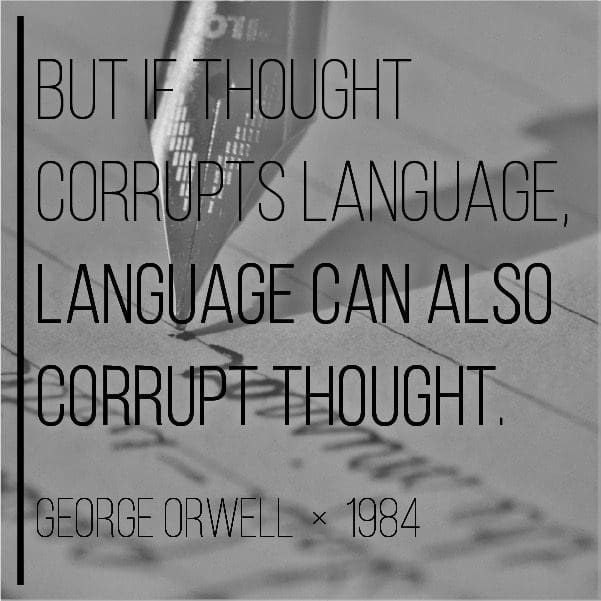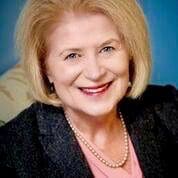Search Posts
Recent Posts
- Bed Bug Awareness: At home, hotel rooms, dorms, vacation rentals, only 29% can identify a bed bug June 8, 2025
- A crack in the foundation – Michael Morse June 8, 2025
- Ask Chef Walter: Ultra processed foods – Chef Walter Potenza June 8, 2025
- Rhode Island Weather for June 9, 2025 – Jack Donnelly June 8, 2025
- Vinny Paz to be inducted TODAY into the International Boxing Hall of Fame – CES Boxing June 7, 2025
Categories
Subscribe!
Thanks for subscribing! Please check your email for further instructions.

“Down the Memory Hole We Go” – Mary T. O’Sullivan
Down the Memory Hole We Go
By Mary T. O’Sullivan, MSOL
“If one is to rule, and to continue ruling, one must be able to dislocate the sense of reality. For the secret of rulership is to combine a belief in one’s own infallibility with the power to learn from past mistakes.” – George Orwell, Nineteen Eighty-Four
Years ago, my job was teaching English at a major high school outside of Syracuse, NY. Among the many classic works of literature assigned, was the George Orwell novel, Nineteen Eighty-Four. Although written in 1948, so many of the outlandish plots and themes of the novel have come to be reality. We actually invite “Big Brother” (a phrase coined in the book) into our homes via Zoom, FaceTime, GPSs, smart watches, smart phones, doorbell cameras etc. In the appendix of his classic book, Orwell describes the language that he used in the novel, Newspeak. Newspeak is a language designed to control every aspect of an individual’s life by combining words and eliminating any word connoting negativity.
In Nineteen Eighty-Four there is no word for “bad”, only “ungood”. Other ironic words were created to baffle and confuse citizens such as, “doublethink”, a brainwashing process where an entire population is expected to accept as true that which is clearly false, or to simultaneously accept two mutually opposing beliefs as correct, often in violation of one’s own memory or sense of reality. Examples from the book are “blackwhite” (believing two contradictory idea at once), “unperson” (a person eradicated from existence), “facecrime”, (guilty of “throughtcrime” by facial expression), and “thinkpol”, or thought police.
We have our own ironic names for things which we may not like such as the retired ICBM, the “Peacekeeper” missile, downsizing, animal by-products, bliss point (the point at which you can’t resist eating an entire bag of potato chips), and other confusing words and phrases, all meant to mean the opposite of what they actually say. And the latest doublespeak comes right from Washington, “escalate to deescalate”, (bomb a key military officer to scare an enemy into submission). Referring to a dangerous global pandemic as a “hoax” is another tactic to distract people from the truth. Announcing that the “heat” of April will make the virus disappear, or that “injecting” disinfectants could kill the virus, and later, reframing the exchange as a joke, generates a great deal of worry and apprehension among the public; many are too afraid to leave their homes.
But why are words and what we mean by them so important? Because words (and images) create our history, they reflect time, a record, a phase of life, an era. I came across a wonderful definition of why words are important: “Words are important. We forget that sometimes. We forget how dangerous and beautiful words can be. Simple words can completely change your life. Yes, words are important because we need them to communicate, but the way that words are presented, spoken, and written are a whole different level of communication.” (Johnny Lim) It’s the how we communicate words that matters. How words are presented, spoken and written can change the course of history, can change people’s lives forever, words are a call to action. So how do we know when words are doublespeak or newspeak or euphemisms, jargon, or bloviation? Now, in our present time of national emergency words in the form of truth are critical.
In our “social distancing” and “self-quarantine” world, the folks in the White House can only wish the memory hole existed. But Orwell did not foresee the permanence of digital technology. The contradictions and doublespeak lives on in our digital memories forever. Lapses of memory can only be a choice that some people make. The video tapes don’t lie. The boldness of ignoring experts’ health warnings and then using the warnings as the basis for many politically convenient policies is trademark doublespeak, of course, and not surprising from someone who regularly contradicts himself even in the same set of remarks.
How will history remember this time of pandemic? Powerful emotional events create strong memories. Yet, in this pandemic, the inconsistent messaging, the confusion about public mingling, and wearing of protective gear may leave our memories fuzzy. Maybe we’ll remember what we could not do, rather than what we did. Maybe the feelings of confusion and uncertainty will leave us with a hodge-podge of fragments of memories, maybe some of will believe it was all a hoax.
Connect with Mary
mary@encoreexecutivecoaching.com
www.encoreexecutivecoaching.com
401-742-1965

Mary T. O’Sullivan
Mary O’Sullivan has over 30 years of experience in the aerospace and defense industry. In each of her roles she acted as a change agent, moving teams and individuals from status quo to higher levels of performance, through offering solutions focused on changing behaviors and fostering growth.
Mary has a Master of Science in Organizational Leadership from Quinnipiac University. In addition, she is also an International Coaching Federation Professional Certified Coach, a Society of Human Resource Management Senior Certified Professional and has a Graduate Certificate in Executive and Professional Coaching, from the University of Texas at Dallas.
In her leadership and executive coaching, she focuses on improving the executive behaviors that slow down performance and lead to growth, such as soft skills, communication, micro-bias awareness, etc. She has successfully helped other professionals, such as attorneys, surgeons, pharmacists, and university professors, make career decisions to lead to success in their chosen careers. In addition, small business owners have sought Mary’s services to bring their companies into greater alignment, working on their culture, vision, mission, values and goals as well as organizational structure. Mary’s executive coaching has been mainly with large organizations among them: Toray Plastics America, Hasbro, Raytheon Company, Lockheed Martin, CVS Healthcare, Sensata Technologies, Citizen’s Bank, Ameriprise, BD Medical Devices, Naval Undersea Warfare Center, (Newport, R.I.), General Dynamics, University of Rhode Island, Community College of Rhode Island, etc.
Mary has facilitated numerous workshops on various topics in leadership such as, emotional intelligence, appreciative inquiry, effective communication, leading in adversity, etc. She has also written extensively on similar topics.
Mary is also a certified Six Sigma Specialist, Contract Specialist, IPT Leader and holds a Certificate in Essentials of Human Resource Management from the Society of Human Resources Development. Mary is also an ICF certified Appreciative Inquiry Practitioner, and a Certified Emotional Intelligence assessor and practitioner.
In addition, Mary holds a permanent teaching certificate in the State of New York for secondary education with Advanced Studies in Education from Montclair University, State University of New York at Oswego and Syracuse University. She is also a member Beta Gamma Sigma and the International Honor Society.
Mary dedicates herself to coaching good leaders to get even better through positive approaches to behavior change for performance improvement.
